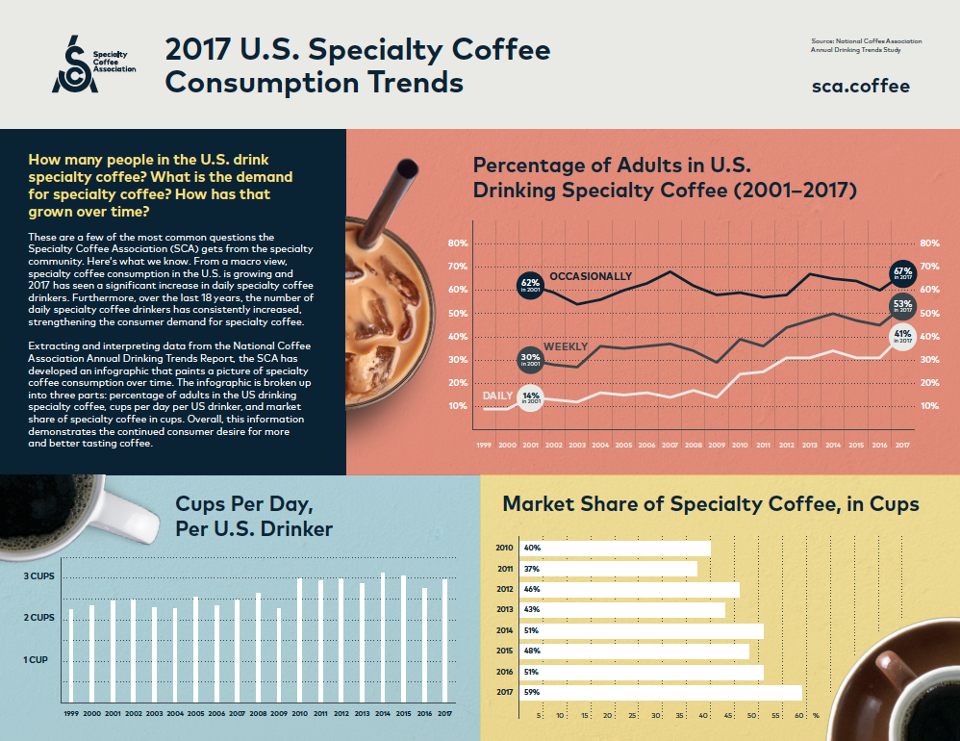Shopping Bag
0
- No products in the cart.

The National Coffee Association (NCA) report on American coffee consumption in 2017 shows we are one very caffeinated nation. This might not come as a shock—Starbucks and other coffee chains, along with local coffee shops, are staples in nearly every city in America—but what is surprising is the type of coffee we’re drinking. According to the NCA report on National Coffee Drinking Trends, 59% of coffee consumed daily is classified as “gourmet.” This is the first time in the trend report’s 67-year history that more than half of daily consumption falls into this specialized category. Younger people are driving this growth and in coffee consumption outside of the home; people 65 years and older drink most of their coffee at home, while coffee drinkers under the age of 35 are more likely to drink it on the go.
The Specialty Coffee Association (SCA) broke the NCA numbers down even further to create the infographic above. Some notable findings:
According to the NCA report, “This represents a gradual but fundamental shift in the American coffee landscape.” What it means is that more people are drinking coffee that comes at a higher price premium and could help buoy what’s known as third wave coffee—a market the Perfect Daily Grind describes as, “understand[ing] that an espresso isn’t just made by a barista. The producer and roaster also receive credit.” It’s coffee that is distinct from the commodity market, celebrated for unique flavors, specific origins and the absence of defects.
Specialty coffee is also characterized by direct relationships with coffee farmers—a way to recognize, and pay for, their effort and care. It matters because increasing numbers of people view coffee as an affordable luxury, not just bitter churn and burn to get them through their day.
https://www.forbes.com/sites/simransethi/2017/12/01/a-surprising-new-trend-in-coffee/#465256a5b311
Free Shipping On All Orders $200+ |
